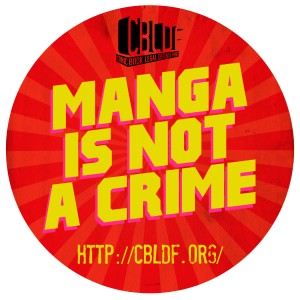 A UN special envoy on child protection waded into the debate over manga and anime in Japan this week, urging the country to ban “particular, extreme child pornographic content” even if it does not involve any actual children. In a press conference wrapping up a week-long fact-finding visit on underage sex trafficking, Maud de Boer-Buquicchio acknowledged the difficulty of “finding the right balance” between free expression and child protection, but nevertheless lumped in manga and anime with exploitative images of real children.
A UN special envoy on child protection waded into the debate over manga and anime in Japan this week, urging the country to ban “particular, extreme child pornographic content” even if it does not involve any actual children. In a press conference wrapping up a week-long fact-finding visit on underage sex trafficking, Maud de Boer-Buquicchio acknowledged the difficulty of “finding the right balance” between free expression and child protection, but nevertheless lumped in manga and anime with exploitative images of real children.
Until last year, Japan only outlawed the production and distribution of child pornography but not the possession of it. When that loophole was (rightly!) closed with a new law, manga and anime barely escaped being included. Although De Boer-Buquicchio’s investigation of the current state of child sexual abuse in the country identified several issues that would seem to be much more pressing — for instance, current law generally requires underaged victims to report the abuse to authorities themselves — she also confoundingly decided to unearth a debate that will only serve to distract from reforms needed to help real live children. The envoy also plans to draw up a comprehensive report to be presented to the UN Human Rights Council in March 2016.
Japanese culture expert, manga translator, and friend of CBLDF Dan Kanemitsu spoke to The Guardian for its article on De Boer-Buquicchio’s recommendations:
There is no such thing as manga and anime child pornography. Child pornography entails the involvement of children, and we must confront it for that reason. [De Boer-Buquicchio] meant sexualised depictions of childish looking characters in manga and anime. Many male and female artists in Japan draw characters in an art style that looks childish to Western eyes. Therefore it is a rejection of an art style popular in Japan.
Kanemitsu has previously predicted that even if child porn laws are not expanded to cover manga and anime any time soon, he anticipates censorship of both formats in advance of the 2020 Olympics — a trend that began as soon as it was announced in 2013 that Tokyo will host the Games. De Boer-Buquicchio’s recommendations will likely escalate the trend.
Although De Boer-Buquicchio paid lip service to the preservation of free expression in her press conference, it may be of interest to note that the UN also appoints a special envoy charged with “promotion and protection of the right to freedom of opinion and expression.” Perhaps it’s time for him to make his own fact-finding trip to Japan!
Help support CBLDF’s important First Amendment work in 2015 by visiting the Rewards Zone, making a donation, or becoming a member of CBLDF!
Contributing Editor Maren Williams is a reference librarian who enjoys free speech and rescue dogs.